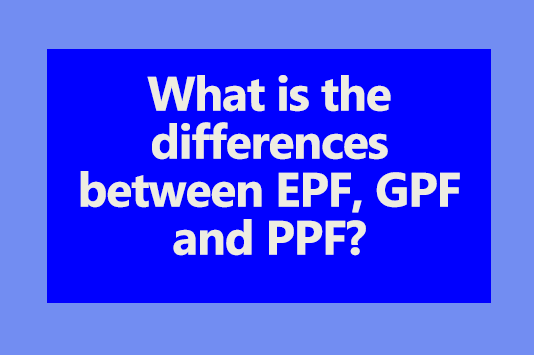Conduct and Disciplinary Rules
Glossary A to C
Abet means to encourage, incite.
Abettor is one who abets the commission of a crime and is present or nearby during the act.
Absolve: To pronounce clear of guilt or blame.
Accused is a person against whom an allegation has been made that he has committed an offence or who is charged with an offence.
Acquit is to set free or deliver from the charge of an offence after trial.
Act: A law made by competent legislature.
Actori incumbit onus probandi: The burden of proof lies on the plaintiff or the prosecution.
Ad hoc disciplinary authority: In a case where the prescribed appointing or disciplinary authority is unable to function as the disciplinary authority in respect of an official, on account of his being personally concerned with the charges or being a material witness in support of the charges, then an ad hoc disciplinary authority is nominated for that case.
Adjudicate: To try and determine judicially.
Appeal: Appeal is a proceeding taken before a superior court or authority for reversing or modifying decision of an inferior court or authority on ground of error.
Appoint means to designate a person to discharge the duties of an office or trust.
Arbitrary: Depending upon the will or pleasure, based on mere opinion or preference, hence capricious.
Arbitrariness being opposed to reasonableness is an antithesis to law. There cannot, however, be any exact definition of arbitrariness, neither can there by any strait-jacket formula evolved therefor, since it is dependent on the varying facts and circumstances of each case.
Audi alteram partem means that both the sides must be heard in a case before it is decided, or that no one shall be condemned unheard. This is one of the rules of natural justice.
Bias may be defined as a preconceived opinion or a predisposition or predetermination to decide a case or an issue in particular manner, so much, so that such predisposition does not leave the mind open to conviction. It is, in fact, a condition of mind, which sways judgments and renders the judge unable to exercise impartially in a particular case.
Becoming conduct: Becoming conduct as defined in Union of India v. K.K. Garg, should conform to the four criteria, namely,
It should be in conformity with the ordinary norms of decency and morality prevalent in the society in which he lives;
It should be in consonance with the laws of the land, which he is bound to respect;
It should not be against the policies of the Govt. which he serves; and
There is not a deliberate breach of departmental rules by the employee.
Benefit of doubt: The advantage derived from doubt about guilt or a possible error of the evidence.
Bigamy: Bigamy is second marriage during the life of the spouse. It is an offence under Section 17 of the Hindu Marriage Act, 1955.
Bona fide: In good faith.
Books or documents of reference: Encyclopaedia, dictionaries and other authoritative treatises on different subjects and important and authentic documents of which the court may take judicial notice and to which it may refer without the same being formally proved.
Break in service: A period of unauthorised absence of employees working in industrial establishments during a strike which is declared illegal shall be deemed to cause an interruption or break in service unless otherwise decided by the competent authority.
In the case of other employees, unauthorised absence because of action in combination or in concerted manner shall be deemed to cause break in service.
Bribe: A reward or gift bestowed or promised with a view to perverting the judgment or decision or corrupting the conduct of a judge or other officer.
Taking or demanding bribe is a misconduct. It is also an offence punishable under Section 161 of the Indian Penal Code.
Bribery: The offer or acceptance of a bribe.
Burden of proof: The onus of proving the charges or allegations. When a person is bound to prove the existence of any fact, it is said that the burden of proof lies on that person.
It needs no emphasis that in a departmental inquiry, the onus of establishing a charge against the delinquent official is on the presenting officer or the prosecution. The finding of the inquiry officer should be based of materials presented during enquiry. If the Inquiry Officer places the onus of disproving the charge on the charged employee, the case of the department would straightaway fall.
Censure: An order of “censure” is formal and public act intended to convey that the person concerned has been guilty of some blameworthy act or omission for which it has been found necessary to award him a formal punishment, and nothing can amount to a “censure” unless it is intended to be such a formal punishment and imposed for “good and sufficient reason” after following the prescribed procedure.
Circumstantial evidence is based on circumstances, which get established by either oral or documentary evidence on the point under inquiry. Though the circumstantial evidence has to be assessed with great caution but it will be wrong to think that circumstantial evidence is weak evidence. A well-knit circumstantial evidence can reasonably lead to a correct conclusion. “For the purpose of a departmental inquiry, complaint, certainly not frivolous, but substantiated by circumstantial evidence, is enough.”
Civil Post: Civil post is a post, not connected with defence and outside the regularly constituted civil services.
Classification of Posts: Classification of civil posts under the Union as Group ‘A’, Group ‘B’, Group ‘C’ and Group ‘D’ posts.
Common Proceedings: Where two or more Government servants are concerned in any case disciplinary action may be taken against all of them in a common proceeding, under order from competent authority, in stead of separate proceeding against each of them.
Compassionate allowance is a kind of pension that may be grated to a Government servant who is dismissed or removed from service.
Complainant is the party who makes the complaint before a competent authority.
The rule is that if a general law is broken, any person has a right to complain, whether he himself has suffered a particular injury or not.
Compulsory retirement is a kind of retirement ordered as a measure of penalty under CCS (CCA) Rules.
Compulsory retirement pension is a kind of pension granted to a Government servant who is compulsorily retired from service as a measure of penalty.
Confession: The action of confessing (to own or admit as a fault) or acknowledging one’s guilt; an admission of guilt by a person who has committed a crime.
“We have the best witness in an accused who confess the charge”.
While there could be no better evidence than ones own confession, yet it is not safe to act upon the same when it is alleged to have been extracted by coercion, especially by the affected party. Such a confession could still be used, if some other independent witness had corroborated it.
Condone: To forgive, overlook, or disregard (a misconduct or offence) without protest or censure.
Condonation of break in service: The past services lost due to imposition of break in service will be allowed to count if the competent authority condones the break in service. “It is not the intention of the Government to deny the pensionary benefits to the employees is all cases of break of service. The question of condonation of break in service for the purpose of Pension Rules may be considered suo motu without waiting for a representation from the affected officials and orders issued so that the retired employees are not put to financial hardship”.
Condonation of break in service for other purposes may be considered on merits, in case of the employee making a representation expressing unqualified regret, etc.
Conduct: The way a person acts; behaviour.
Government servants are bound to conduct themselves in a way consistent with the faithful discharge of the obligations undertaken by them either expressly or impliedly in accepting the service.
Every Government servant is bound to observe certain rules of conduct and discipline both in relation to his employment and outside his employment. There exist both written (not exhaustive) and unwritten codes of conduct for them which must be observed by every Government servant.
Conduct, which has led to conviction of a Government servant: The original conduct, which constituted the offence for which the Government servant has been convicted.
Conviction itself cannot be equated with misconduct. The basis for imposing departmental penalty under Rule 19 of CCS (CCA) Rules is the conduct, which has led to the conviction and not mere conviction.
Control: Power to check or restrain; superintendence. To regulate; to govern; to have under command.
Conviction: The act of a legal tribunal adjudging a person guilty of an offence.
Criminal proceeding: A proceeding instituted and conducted for the purpose either of preventing the commission of a crime or for fixing the guilt of a crime already committed and punishing the offender.
Currency of penalty: The period for which the penalty prevails or is in currency or is operating.
Currency of penalty-promotion during: To punish a servant and at the same time to promote him during the currency of the punishment may justifiably be termed as self-contradictory.”
“In other words, a penalty of ‘Censure’ is deemed to have become final as soon as it is imposed without any further currency, likewise the penalty of recovery should not be a bar to eligibility for consideration (for promotion).”
the Words from D to be continued in next post……


sir,
kindly clarify, if a central govt. servant commit an irregularity under the pressure of his senior. under what rule such an officer is laible to be punished?. what action if irregularity pertains to national security?
regard
ramesh